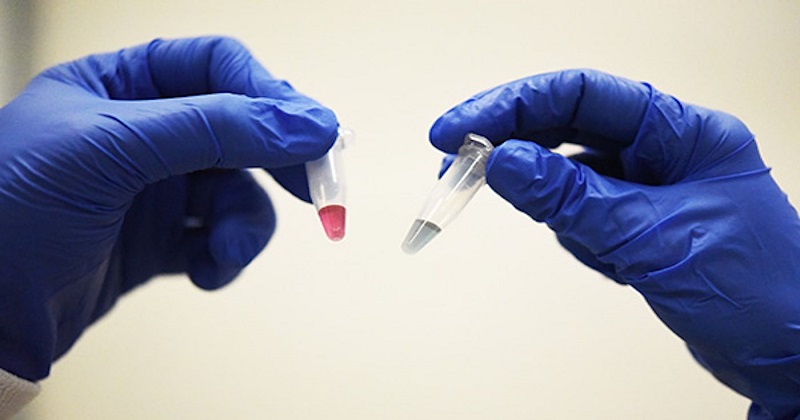
Researchers have developed a new cancer-detecting tool, which uses tiny circuits made up of DNA to identify cancer cells by the molecular signatures on their surface. Duke University researchers fashioned the simple circuits from interacting strands of synthetic DNA that are tens of thousands of times finer than a human hair.
Unlike the circuits in a computer, these circuits work by attaching to the outside of a cell and analysing it for proteins found in greater numbers on some cell types than others. If a circuit finds its targets, it labels the cell with a tiny light-up tag. Because the devices distinguish cell types with higher specificity than previous methods, the researchers hope their work might improve diagnosis, and give cancer therapies better aim.
A team led by Duke computer scientist John Reif and his former PhD student Tianqi Song described their approach in a recent issue of the Journal of the American Chemical Society. Similar techniques have been used previously to detect cancer, but they’re more prone to false alarms, misidentifications that occur when mixtures of cells sport one or more of the proteins a DNA circuit is designed to screen for, but no single cell type has them all.

Post Your Comments